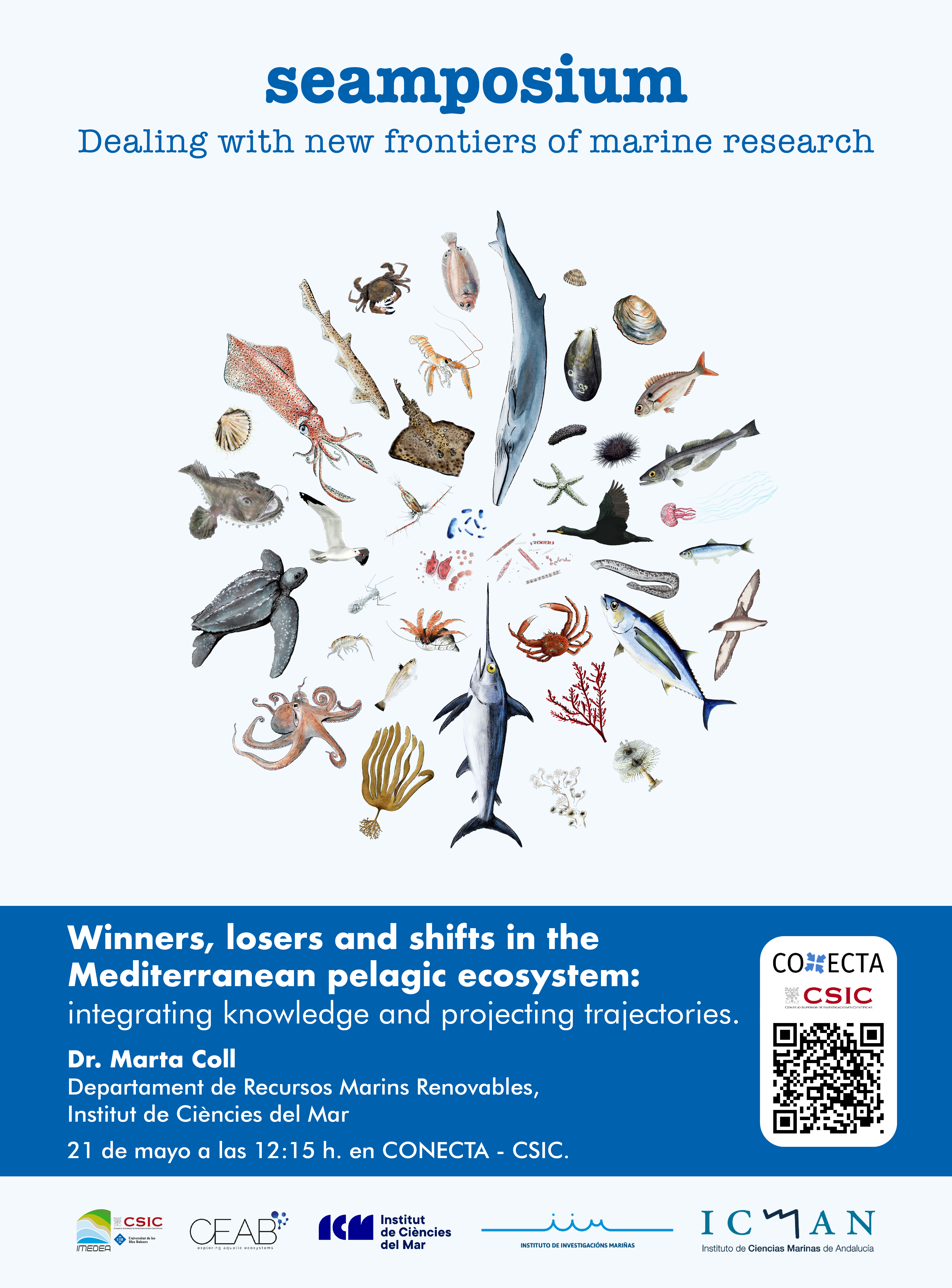"Seamposium: Dealing with new frontiers of marine research" es un ciclo de conferencias organizado por los centros marinos del CSIC, entre los que se encuentran el ICM, el IMEDEA, el CEAB, el IIM y el ICMAN. A partir de este evento se creará un Foro de discusión entorno a un seminario mensual realizado por una persona experta reconocida en diferentes temáticas marinas.
Winners, losers and shifts of the pelagic ecosystem in the western Mediterranean Sea: integrating knowledge and projecting trajectories of change.
Dra. Marta Coll - Institut de Ciències del Mar (ICM-CSIC) & Ecopath International Initiative (EII), Barcelona, Spain.
> Language: English
> Link: ConectaHA CSICNowadays, the single-stock assessment approach is most used for the management of marine resources. However, the dynamics of exploited stocks are influenced by other factors than fishing alone. Environmental and ecosystem dynamics, and economic and social aspects are also highly relevant, and can interact with fishing impacts. These factors are often overlooked when making management decisions.
In particular, small pelagic fish species (SPF) such as European sardine (Sardina pilchardus) and European anchovy (Engraulis encrasicolus) are some of the most commercially exploited species in the NW Mediterranean Sea. They have shown important changes in the last decades in terms of shifts in abundance, biomass, body condition, growth, reproduction and spatial distribution. Different hypotheses have been formed to explain these changes, such as an increase in fishing impacts; changes in environmental conditions that have affected annual recruitment, growth, general conditions of organisms, and planktonic productivity and quality; a recent recovery of pelagic predators; and competition for food with jellyfish or round sardinella (Sardinella aurita).
Under three consecutive projects, SPELMED, PELWEB and PELCAT, we aimed at improving and integrating SPF knowledge into a multi-modelling platform to quantify the impacts and project future trajectories of change. We specifically aimed at (1) identifying historical changes of small pelagic fish population traits (e.g. body condition, abundance and distribution); (2) quantifying the ecological and socio-economic consequences of the changes in SPF populations on fisheries, iconic predator species, and ecosystem-wide dynamics, and (3) identifying robust future management options to achieve resilient and healthy SPF populations and a sustainable exploitation under climate change.During this talk, I will present some of our findings and I will illustrate the importance of an integrated consideration of climatological, environmental, ecological and socio-economic factors when managing exploited resources from an ecosystem-based management perspective. I will showcase the tools that we used to generate and integrate results, ranging from stock assessments to species distribution models and process-oriented ecosystem spatial-temporal models.
Información para estudiantes de programa oficial: se podrá solicitar el correspondiente "Certificado de Asistencia" justo al finalizar el seminario a través de un e-mail al responsable de los Seminarios del IMEDEA (alos(arroba)imedea.uib-csic.es) incluyendo los siguientes datos: Titulo del Seminario, Ponente, Nombre completo del Estudiante, Programa de Estudios y Universidad. No se atenderán peticiones fuera del plazo.
